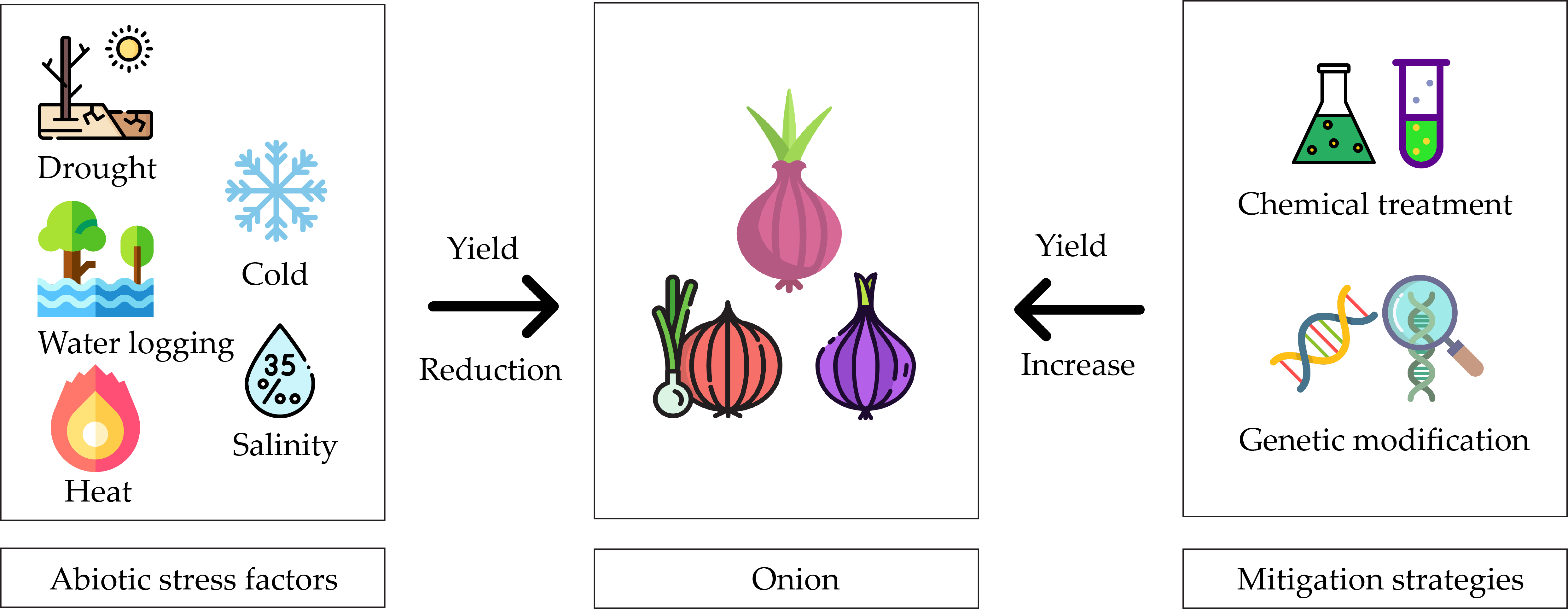Effect of Abiotic Stress on Onion Yield: A Review
DOI:
https://doi.org/10.31357/ait.v1i1.4876Abstract
Onion (Allium cepa L.) is a spice crop and a valuable economic crop cultivated in a variety of environments around the world. Because of its export demand, it is extremely important in terms of foreign exchange. Drought stress, waterlogging stress, heat stress, cold stress, and salinity stress all have an impact on onion growth, production, and yield in different ways. A lack of water causes low productivity, therefore to increase onion yield, a constant supply of water is needed. Onions are particularly susceptible to salt stress. The number of bulbs per unit area, height, and fresh weight of onion bulbs, are all affected by salinity in irrigation water. It has an effect on bulbing and the quality of harvested bulbs. Waterlogging has a major effect on bulb development and yield at various growth stages. Waterlogging stress in onions may prevent moving from source to sink, lowering bulb yield. The possible flavor of onions can be affected by the surrounding climate. The bulbing response is influenced by temperature, and the degree to which it is influenced varies by variety. As the temperature increases, the number of leaves decreases. The bulb diameter, bulb weight, and bulbing index (bulb/neck diameter) all increase as the temperature rises. This review provides an in-depth description of the effect of abiotic stress on onion yield.

Downloads
Published
How to Cite
License
Copyright (c) 2021 Vassanthini Ratnarajah, Niroash Gnanachelvam

This work is licensed under a Creative Commons Attribution-NonCommercial-NoDerivatives 4.0 International License.
The Authors hold the copyright of their manuscripts, and all articles are circulated under the terms of the Creative Commons Attribution License, which permits unrestricted use, distribution, and reproduction in any medium, as long as that the original work is properly cited.
The use of general descriptive names, trade names, trademarks, and so forth in this publication, even if not specifically identified, does not imply that these names are not protected by the relevant laws and regulations. The authors are responsible for securing any permissions needed for the reuse of copyrighted materials included in the manuscript.




